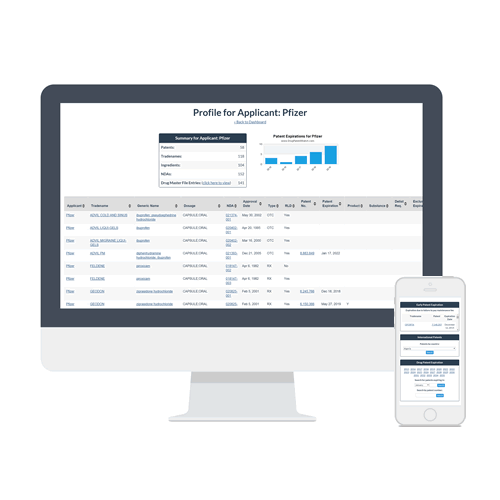
In the ever-evolving world of pharmaceuticals, a controversial practice has emerged that’s causing quite a stir: biologic product hopping. But what exactly is this phenomenon, and is it a genuine innovation or just a clever market manipulation tactic? Let’s dive deep into this complex issue and unravel its implications for patients, healthcare providers, and the pharmaceutical industry as a whole.
Table of Contents
Understanding Biologic Product Hopping
Biologic product hopping is a strategy employed by pharmaceutical companies to maintain their market dominance as patents on their blockbuster drugs approach expiration. It involves introducing a slightly modified version of an existing biologic drug, often with minimal improvements, to extend patent protection and prevent generic competition[1].
The Mechanics of Product Hopping
Product hopping typically involves two main techniques:
- Soft switch: Companies use marketing tactics and temporary discounts to persuade doctors to switch patients to the new drug formulation.
- Hard switch: The original drug is withdrawn from the market or declared “obsolete,” making it difficult for doctors to prescribe the older version[3].
The Impact on Generic Competition
By introducing these “new” formulations, pharmaceutical companies can effectively reset the clock on patent protection, delaying the entry of cheaper generic alternatives into the market. This strategy can have significant implications for drug accessibility and affordability.
The Case for Innovation
Proponents of product hopping argue that it drives innovation in the pharmaceutical industry. They contend that even minor improvements to existing drugs can lead to better patient outcomes and justify the continued patent protection.
Incremental Improvements
Some product hops result in genuine improvements, such as:
- Enhanced drug delivery methods
- Reduced side effects
- Improved dosing schedules
These changes, while not revolutionary, can significantly impact patient compliance and quality of life.
Incentivizing Research and Development
Supporters argue that the potential for extended market exclusivity through product hopping incentivizes pharmaceutical companies to invest in ongoing research and development, ultimately benefiting patients in the long run.
The Case for Market Manipulation
Critics of product hopping view it as a thinly veiled attempt to maintain monopoly pricing power and stifle competition. They argue that many product hops offer little to no therapeutic benefit over the original formulation.
Delaying Generic Entry
By introducing new formulations just before patent expiration, pharmaceutical companies can effectively reset the clock on generic competition. This delay can result in prolonged high prices for patients and healthcare systems.
The Cost to Consumers and Healthcare Systems
The practice of product hopping can lead to significantly higher drug costs, as patients are steered towards newer, more expensive formulations even when cheaper generic alternatives become available.
“Product hopping undermines a generic drug’s bioequivalence and therefore the generic’s ability to utilize the ANDA process and state switching laws.”[2]
Real-World Examples of Biologic Product Hopping
To better understand the implications of product hopping, let’s examine some high-profile cases that have sparked debate in the pharmaceutical industry.
The Namenda Case
In 2014, Actavis (now Allergan) faced the expiration of its patent for Namenda IR, an Alzheimer’s treatment. The company introduced a new extended-release version, Namenda XR, and attempted to discontinue the original formulation[3].
This move prompted legal action, with the court ultimately ruling against Actavis, finding their actions anticompetitive.
The TriCor Saga
Abbott Laboratories employed a series of product hops with its cholesterol-lowering drug TriCor. The company switched from capsules to tablets, changed dosages, and discontinued older formulations to impede generic competition[3].
These tactics were highly effective, with generics capturing only 2% of the market despite offering equivalent quality at a much lower price.
The Regulatory Response
As the debate around product hopping intensifies, lawmakers and regulatory bodies are taking notice and proposing measures to address potential abuses.
The Affordable Prescriptions for Patients Act
In 2019, a bipartisan group of senators introduced the Affordable Prescriptions for Patients Act, aimed at combating anticompetitive practices in the pharmaceutical industry, including product hopping[3][4].
Key Provisions of the Act
- Defines product hopping as anticompetitive
- Empowers the Federal Trade Commission (FTC) to bring litigation against offenders
- Addresses both hard switches and certain soft switches that unfairly disadvantage generic competition
The FTC’s Role
The FTC has been tasked with defining what constitutes “unfair” practices in soft switches, a complex area that requires careful consideration of legitimate marketing efforts versus anticompetitive behavior[3].
The Global Perspective
Product hopping is not unique to the United States. Many countries are grappling with similar issues and developing their own regulatory responses.
European Union Approach
The European Union has taken a more stringent approach to product hopping, with several high-profile cases resulting in significant fines for pharmaceutical companies found to be engaging in anticompetitive practices.
Emerging Markets
In emerging markets, where access to affordable medications is crucial, the impact of product hopping can be even more pronounced. Some countries are exploring innovative policies to balance innovation incentives with the need for accessible generic alternatives.
The Patient Perspective
Amidst the legal battles and policy debates, it’s crucial to consider the impact of product hopping on patients.
Potential Benefits
In some cases, product hopping can lead to improved formulations that offer genuine benefits to patients, such as:
- Reduced side effects
- Simplified dosing regimens
- Enhanced efficacy
Potential Drawbacks
However, patients may also face challenges due to product hopping, including:
- Higher out-of-pocket costs
- Forced switches to new formulations
- Confusion over multiple similar products
The Future of Biologic Product Hopping
As the pharmaceutical landscape continues to evolve, the future of product hopping remains uncertain. Several factors will likely shape its trajectory:
Regulatory Developments
The implementation of new regulations, such as the Affordable Prescriptions for Patients Act, could significantly impact the viability of product hopping as a strategy.
Technological Advancements
Emerging technologies in drug development and delivery may create new opportunities for genuine innovation, potentially reducing the reliance on product hopping for patent extension.
Market Pressures
Increasing scrutiny from payers, healthcare providers, and patients may force pharmaceutical companies to reconsider their approach to product lifecycle management.
Conclusion
The debate over biologic product hopping as innovation or market manipulation is far from settled. While some argue that it drives continuous improvement in drug formulations, others see it as a cynical attempt to maintain monopoly pricing power at the expense of patients and healthcare systems.
As regulatory bodies and lawmakers grapple with this complex issue, it’s clear that a delicate balance must be struck between incentivizing genuine innovation and ensuring access to affordable medications. The future of product hopping will likely depend on how successfully this balance can be achieved.
FAQs
- Q: What is the difference between a soft switch and a hard switch in product hopping?
A: A soft switch involves using marketing tactics and temporary discounts to persuade doctors to switch patients to a new drug formulation, while a hard switch involves withdrawing the original drug from the market or declaring it obsolete. - Q: How does product hopping affect generic drug competition?
A: Product hopping can delay or prevent generic drugs from entering the market by introducing new formulations that reset patent protection, making it difficult for generics to compete. - Q: Are there any legitimate reasons for pharmaceutical companies to engage in product hopping?
A: Some argue that product hopping can lead to genuine improvements in drug formulations, such as enhanced efficacy, reduced side effects, or improved dosing schedules. - Q: What is the Affordable Prescriptions for Patients Act?
A: It’s a bipartisan bill introduced in the U.S. Senate aimed at combating anticompetitive practices in the pharmaceutical industry, including product hopping, by empowering the FTC to take action against offenders. - Q: How might future technological advancements impact product hopping?
A: Emerging technologies in drug development and delivery may create new opportunities for genuine innovation, potentially reducing the reliance on product hopping for patent extension.
Sources cited:
[1] https://www.youtube.com/watch?v=C5b9c-w1EhM
[2] https://www.bu.edu/jostl/files/2016/05/MILLER_ART_MACROD_FINALWEB.pdf
[3] https://www.forbes.com/sites/theapothecary/2024/05/21/how-drug-companies-stifle-competition-with-product-hopping/
[4] https://www.cornyn.senate.gov/news/cornyn-blumenthal-introduce-bill-to-lower-drug-costs-by-preventing-patent-system-abuse/


